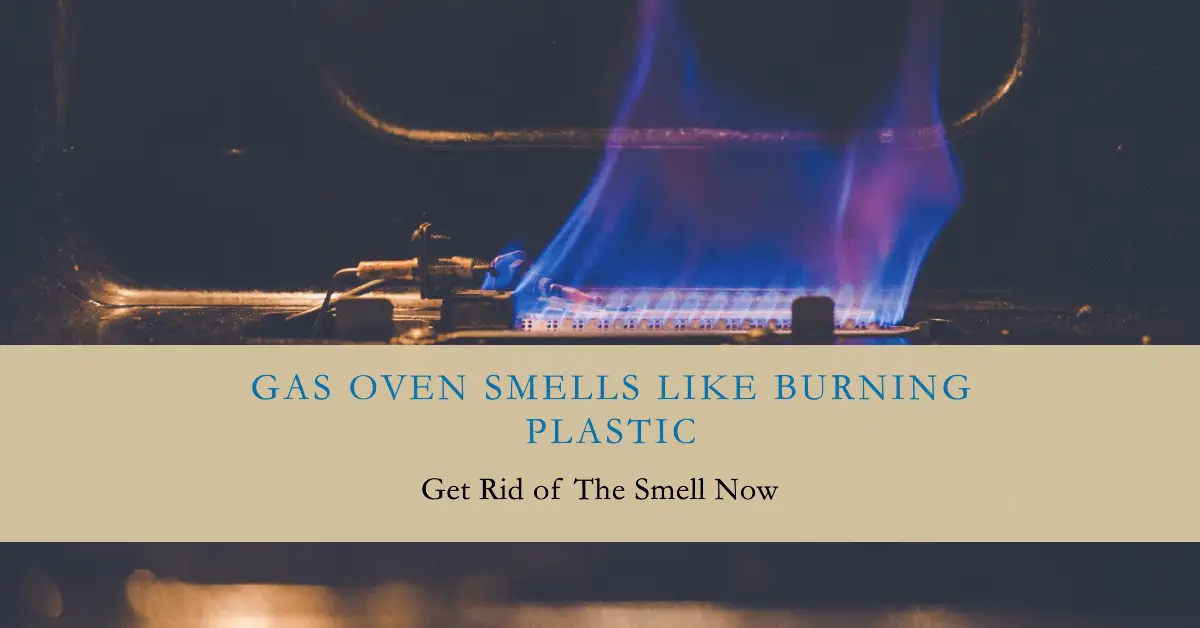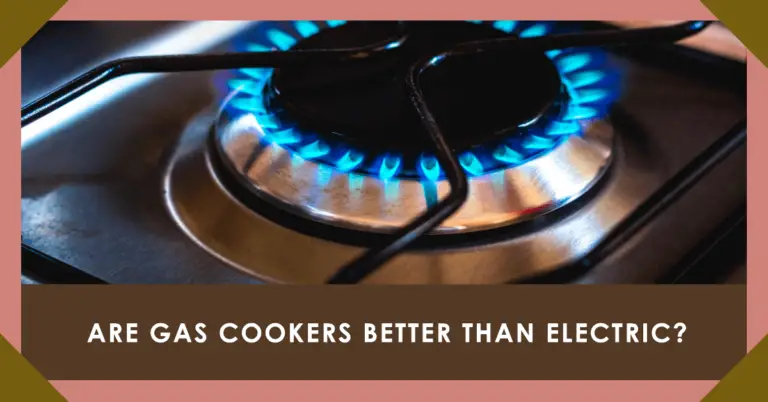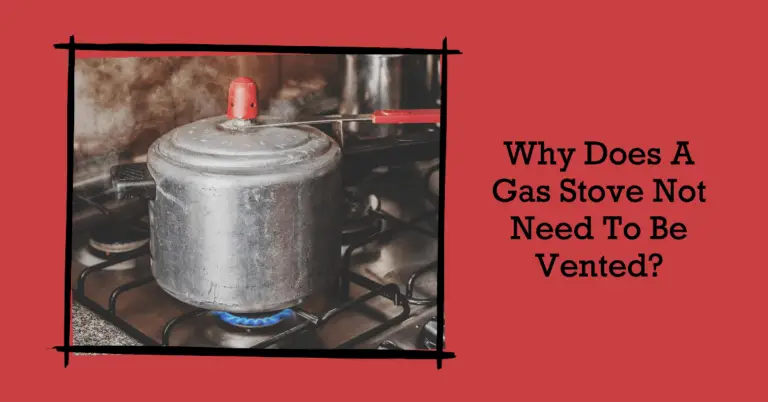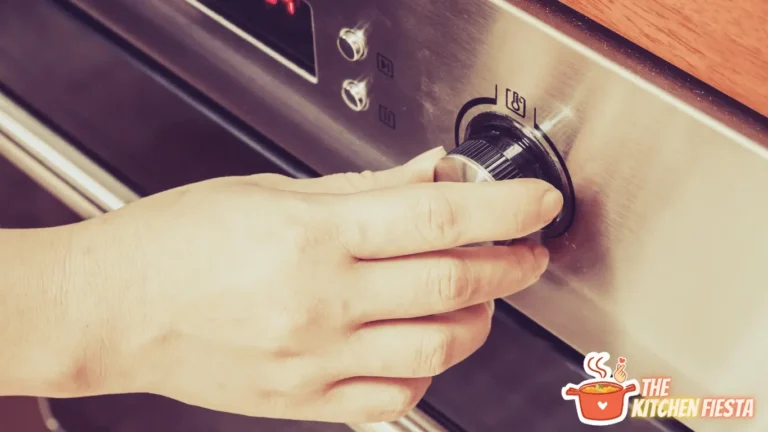Why Does My Gas Oven Smell Like Burning Plastic? Causes and Fixes

Have you ever noticed a troubling smell of burning plastic coming from your gas oven? This unpleasant burning odor is definitely not normal and needs to be addressed right away before it becomes a bigger issue.
A smell like burning plastic in your oven indicates that something is wrong. It’s often a sign of melted plastic parts, food residue buildup, electrical faults, or gas leaks. Left unchecked, it can even become a fire hazard.
The good news is that while an oven with a burning plastic smell can be alarming, the cause is usually fixable. This comprehensive guide will walk you through the common causes, how to diagnose the source, the best ways to eliminate the odor, and when to call in a professional for oven repairs.
We’ll cover:
- What causes that burning plastic smell in my oven?
- How to diagnose the cause of the burning plastic odor
- How to get rid of that horrible burning plastic smell
- When to call a professional about oven smells
- FAQs: Common questions about oven smells
By the end, you’ll be able to get rid of that bothersome burning plastic oven smell and prevent it from returning. Let’s get started!
What Causes That Burning Plastic Smell in My Oven?
There are a several common culprits that can create a burning plastic-like odor inside your gas oven:
Leftover Plastic or Packaging in the Oven
One of the most obvious causes of a burning plastic smell from the oven is leaving behind some type of plastic material inside the oven by accident.
Common examples include:
- Plastic packaging from food containers or wraps
- Plastic cooking utensils left inside
- Plastic bags used for food storage
When your oven is heated, even to normal baking temperatures, any plastic items left inside can easily melt or scorch and produce that annoying smell of burning plastic.
Make sure to do a visual check of the oven interior before using it to remove any plastic pieces or debris that may cause odors.
Melting Rack Guides, Ties or Other Plastic Parts
Many modern gas ovens contain various plastic components inside such as rack guides, rack stops, burner covers, light housing, and wiring ties or insulation.
Over time, especially if exposed to high heat from the oven’s self-cleaning mode, these oven parts can melt or burn and emit that smell of hot burning plastic.
Check inside your oven to see if any plastic fittings show signs of melting, which can indicate this as the cause of the odor.
Burning Food Residue and Grease
Leftover spilled food, grease splatters, and built-up food residue getting burned inside the oven is another common source of unpleasant burning-type odors.
Over time, baked-on grease, fat, sugar, starches, and proteins can coat the inside of your oven. Then when heated, even at normal baking temperatures, this food buildup gets burnt creating smells of burning that fill your kitchen.
Look inside the oven, especially along the top interior and around the heating elements, for any signs of food residue buildup that could be getting scorched and causing odors whenever the oven is used.
Faulty or Melting Insulation
Gas ovens have insulation along the outer housing and around internal components to maintain heat and prevent burns.
If this oven insulation becomes damaged – which can happen over years of heat exposure – it can start to melt and burn when the oven is heated. This can release an unpleasant smell of burning plastic or other chemical odors.
Signs of faulty insulation include visible melting, warping, burn marks inside the oven cavity, or hot spots on the oven exterior.
Electrical Short or Burning Wires
Since gas ovens also have internal electrical components to control timing, temperature, and ignition, an electrical short or burning wiring can produce smells similar to burnt plastic.
If there is a loose connection, damaged heating element, deteriorating wiring insulation, or general electrical fault, this can cause a burning wire smell when the oven is turned on.
Electrical shorts inside appliances like ovens can lead to melted plastic components, smoke, and fire risks so this cause should not be ignored.
Gas Leaks and Other Safety Issues
On gas ovens, a leaking gas supply line or burner can also create burning plastic-like odors. A very severe gas leak may even emit a rotten egg sulfur smell.
Gas leaks are highly dangerous and need immediate attention to fix. Turn off the gas supply and contact the gas company or oven repair service urgently if you suspect a leak.
Other safety issues like an oven fire from food, grease or debris buildup can also cause burning and plastic smells. Deal with oven fires immediately by turning off the oven and avoiding opening the door.
The New Oven Smell from Factory Protective Coatings
Another scenario where a new oven may smell like burning plastic is fromresidual manufacturing oils and protective plastic film coatings getting burned off when first heated.
This new oven smell should fade after the first few uses. Run the oven empty on a high temp for an hour or so to help speed it along. Open windows to ventilate.
Using Too High Heat During Self-Cleaning Mode
Finally, incorrect use of the self-cleaning mode can be a cause of that horrible burning plastic smell from your oven.
Excessively high heat over 700 F during self-cleaning can melt or burn oven parts and result in bad smells. Always follow the manufacturer instructions for self-cleaning carefully.
Now that you know what causes plastic burning smells in an oven, it’s time to diagnose the exact source in your appliance.
How to Diagnose the Cause of the Burning Plastic Odor
Finding the specific cause of that annoying burning plastic oven smell takes some detective work.
Here are tips on how to inspect, test, and isolate where exactly that smell is coming from in the oven:
Inspect the Oven Cavity Thoroughly
First, do a visual inspection of the entire oven interior – top, bottom, sides, back.
Look for:
- Any plastic debris, bags, utensils left behind
- Signs of melted plastic parts or insulation
- Charring, scorch marks, food residue buildup
- Damage to oven racks, heating elements, etc.
Look for Signs of Melted Plastic
Check around heating elements and any plastic housing or light covers for visible melting or burn marks.
See if plastic fittings, ties, or rack stops appear warped or sooty which can indicate melting from the oven heat.
Check for Electrical Shorts and Gas Leaks
Check the back of the oven for any discolored or damaged wiring indicating an electrical issue.
For gas ovens, smell around the stove burners for any natural gas odor indicating a potential leak. Do not ignite any burners if you suspect a major leak.
Try Heating at Low Temperatures
Run the oven empty for a short time at ~200 F to isolate if the smell only happens at higher temps, pointing to an internal oven issue.
Consider Recent Use and Cleaning
Think back to if the smell started after any specific incidents – a spill, self-cleaning, packet food bursting, aggressive scrubbing, etc.
Think About When the Smell Started
Take note if the odor is totally new and if anything changed recently, like new racks, bakeware, or storage items being used in the oven.
Once you’ve diagnosed the likely source based on these steps, it’s time to tackle eliminating that unpleasant smell of burning plastic coming from the oven.
How to Get Rid of That Horrible Burning Plastic Smell?
When you’ve isolated the cause of the oven’s burning plastic odor, here are the steps to take:
Remove Any Remaining Plastic Parts
Double check for any leftover plastic trash, wraps or trays and remove them carefully from the oven cavity. Use gloves and tongs if the plastic is melted.
Also remove any obviously damaged plastic fittings or rack parts that are melted or scorched.
Clean the Oven Thoroughly with Baking Soda
Use a baking soda and water paste to scrub away any burnt on food residue or grease splatters contributing to the smell.
Baking soda also helps absorb odors. Let it sit for 15 mins before wiping clean for maximum effect.
Use Odor Absorbing Bags and Containers
Place open boxes of baking soda, charcoal bags, or baking soda filled containers in the oven cavity overnight to absorb lingering odors.
Run Self-Cleaning Mode Safely
Use the oven’s self-cleaning mode per the manufacturer instructions to incinerate any remaining food buildup and plastic odors.
Ventilate the Kitchen Well
Whenever using the oven, open windows to maximize ventilation and don’t leave the door closed after use.
Replace any Melted or Damaged Parts
If any oven parts like rack guides or interior lining show heat damage, replace them to prevent ongoing burning plastic smells.
Call a Technician for Repairs if Needed
For concerns about electrical shorts, gas leaks, insulation damage or other issues requiring disassembly, call an appliance repair technician.
With some effort spent pinpointing and addressing the root cause, you can successfully eliminate that annoying plastic burning smell coming from the oven.
When to Call a Professional About Oven Smells?
While many oven odor causes can be DIY diagnosed and fixed, sometimes calling in a technician is the safest bet:
If Unsure About the Cause of the Smell
If inspection hasn’t revealed any obvious source, professional help identifying the issue is recommended.
For Suspected Gas Leaks or Electrical Issues
Don’t attempt to fix gas leaks or electrical shorts yourself – get a certified appliance repair tech.
If Self-Cleaning and Cleaning Doesn’t Work
If thorough cleaning fails to fully eliminate the burning plastic smell, an underlying issue may need repair.
For Ongoing Burning Smells Despite Your Efforts
Persistent burning odors after cleaning and part replacement indicates a problem requiring an expert.
Don’t take chances with dangerous electrical or gas issues or prolong an oven smell situation out of hesitance to call a technician.
FAQs: Common Questions about Oven Smells
Is it Normal for a New Oven to Smell?
Yes, some new oven smell from factory lubricants and protective plastic coatings getting burned off is expected. Run a high heat empty cycle to help dissipate it faster.
Can Self-Cleaning Mode Cause Burning Smells?
Yes, if plastic parts or food residue get excessively hot from self-cleaning. Carefully follow the oven manual’s instructions.
Why Does My Oven Smell like Rotten Eggs?
A sulfur or rotten egg smell usually indicates a gas leak, which can be very dangerous. Turn off the gas line and call the gas company immediately.
Is it Safe to Use if My Oven Smells Like Burning?
No, any burning smells when the oven is on likely indicate an underlying issue, especially melting plastic parts or electrical faults. Fully resolve the cause before regular use.
Key Takeaways on Fixing That Burning Plastic Oven Smell
Dealing with a gas oven that smells like burning plastic whenever it’s used can be worrying but is usually fixable. Here are the key tips:
- Act quickly when you notice a burning odor – don’t ignore it. Thoroughly inspect the oven interior for the smell source.
- Common causes include left behind plastic materials, melted oven parts, baked on food residue, gas leaks, and electrical shorts.
- Isolate if the smell only happens at high temps to pinpoint an internal oven issue versus an external factor.
- Clean away any visible food buildup using baking soda. Run self-cleaning safely to incinerate residues.
- Check for any warped or damaged plastic fittings and wiring. Replace any needed parts.
- For lingering burning smells, call in an appliance repair technician to inspect for damage and make any needed fixes.
- Address sparks, gas leaks, or clear hazards immediately and contact appropriate help.
With some diligent detective work and appropriate cleaning or repairs, you can eliminate that annoying burning plastic odor from your gas oven for good.






